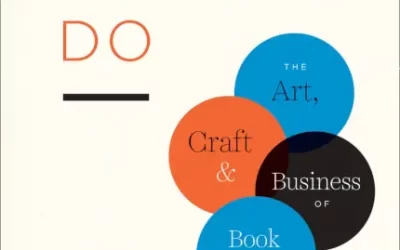
I attended the Writer’s Digest Annual Conference at the Hilton Midtown in New York City from July 28–31, 2022, and it was a very interesting experience. There were numerous intriguing sessions, and I will share common refrains that I heard throughout the weekend as well as some other general impressions:
When It Comes to Writing, There Are No Hard Rules
I attended several craft sessions over the weekend, and this lesson came up frequently. There are suggested rules, but these can be broken if needed. For example, in the session “Help Your Characters Sound Like Themselves (Instead of Sounding Like You),” Katrina Kittle said that there are only “typical truths” when it comes to creating unique character voices. In the session “Misguided Desires & Misbegotten Yearnings,” David Corbett taught us that characters do not always have to know what they want, get what they want, or do the right things for the right reasons. And in “Weaving the Character Web,” David Corbett stated that characters do not always have to be likable.
Embrace The Unexpected
This applies to both the writing process and attending the conference itself. First, the writing process. In the session “Straight Talk: Secrets to Writing a Satisfying Setting,” Sadeqa Johnson implored us to keep an open mind when researching settings for our books because you never know when a particular location’s energy will inspire you. During “Perils and Payoffs: Best Practices and Fast Hacks for Achieving Vibrant Authenticity on the Page,” Elizabeth Sims told us to say yes to every new experience, especially if the opportunity comes up unexpectedly. As for the conference itself, unexpected events led to (at minimum) satisfactory results. On the first day of the sessions, two panelists cancelled, so I had to make some split-second decisions on alternate sessions to attend. Fortunately, I had backup plans in mind going into the conference, with alternate sessions providing me with information that will be quite useful when I draft future novels. The pitch slam was all about embracing the unexpected, whether due to agents canceling ahead of time or a pitch being rejected. Keynote speaker Tiffany D. Jackson unexpectedly prompted a book idea to pop up in my head during her speech.
Writing Is An Art, But Publishing Is A Business
This was most obvious during the “Budgeting Basics for Emerging Authors” session where Ralph Walker and E.J. Wenstrom informed us of various income streams (selling books, writing for hire by penning articles or short stories, accepting short-term gigs as freelancers or teachers) and taught us to seek out the largest possible returns on our investments (developmental editors, sensitivity readers, writing-related furniture, brand investments such as websites and business cards, and networking investments such as bookstore signings and writing conferences). Throughout the conference, many of the session speakers promoted their novels and instructional books during their talks. Before keynote speeches, introductory speakers reminded us that books were available to purchase in the conference bookstore or at exhibit tables. Of course, there is absolutely nothing wrong with such promotion, especially for authors who want to earn a living through their writing (I even purchased Black Leopard, Red Wolf by Marlon James and got it signed by the author). On the flip side, session speakers and keynote speakers alike told us that if we want to write solely to get rich, then we are writing for the wrong reason. During the aforementioned budgeting session, Ralph Walker even implored us to not quit our day jobs because very few authors become independently wealthy by selling their books. It is a delicate balance to write for personal pleasure versus profit, but it is an achievable one.
Other takeaways:
- I was impressed that the conference organizers were cognizant enough of the differing social comforts of attendees to offer three color-coded lanyards: red for no contact, yellow for “ask first,” and green for fully open to communication (for the record, I chose yellow). The registration table also offered a selection of ribbons that attendees could attach to their badges to indicate their chosen genre. I chose the yellow Young Adult ribbon, since I was pitching a book – My Shell – that most closely fit into that genre (coincidentally, it color-coordinated with my lanyard).
- It was very convenient that registration and all sessions were located on the second floor of the hotel so attendees did not have to worry about rushing between sessions. Upon closer examination, this was especially helpful for physically handicapped attendees. The session schedule also allowed for an hour and 45 minutes of lunchtime on Friday and Saturday.
- Even though I mostly attended Craft sessions, the conference helpfully offered session tracks for various aspects of the art of writing and the business of publishing: Building Your Platform, Fiction, Nonfiction, Screenwriting, Publishing Business, Craft, Indie Publishing, Inspiration, and Writer’s Reserve (which seemed to be a mix of craft and inspiration). There was unfortunately no session on poetry, but other than that, it truly was a conference for every writer at all stages of their careers.
I personally feel that what I learned will be much more valuable as reference tools when I draft future novels than it seemed in the moment, but other writers may feel differently. Therefore, I encourage all writers to attend future iterations of this conference.
Happy Writing!
By: Matt Wade
Matt is an Editorial Assistant at Technica Editorial




